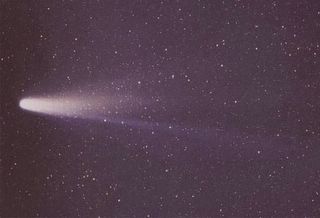Isn't that a good story?
Once upon a time, there was a Madman and a Poet living on a spectrum of the Sovereign of Sameness, when suddenly, one day, because of--well, we don't really know why--a Science of Otherness is born between them, a form of knowledge whose first words are the signs of Modernity. Modernity: where identity takes on a life of its own.
But wait. What happened to the Poet?
*
Have been living with an unreliable internet connection. Have been poking around again in things I've been thinking about for some time: this thing about poetry and sympathy I've been trying to put my finger on, and this other thing about poetry and epistemology, a related thing, both collusions of a pre-Enlightenment sort that elude me precisely because I think of them (superstitious romantic sentimental me) as felicitously conspiring, probably in tandem, against things I actually believe.
Like: rather the associative-syncretic loony than a guy with a pack of pencils drawing lines, but I'm convinced the guy with the pencils is in the know because he's the one putting down lines that make the world. Like: these two are not mutually exclusive--that's a bunch of useful baloney--but I tend to line them up that way. Still.
As I said, categories, mythologies, identities, histories, stories: they are not only convenient, but powerful.
Can't trust the story tellers, but I do love a good story.
So just for fun, here's Pierre Bayle from Various Thoughts on the Occasion of a Comet, 1682, on the mad poet with a pencil.

"On the Authority of Poets
It is not possible to have a more miserable foundation. For, to begin with the poets, you are not unaware, Monsier, that they are so intent on strewing their works with a number of pompous descriptions, like those of prodigies, and on giving something of the marvelous to the adventures of their heroes, that to achieve their ends they imagine a thousand astounding things. So far from believing, on the basis of their word, that the overturning of the Roman Republic was the effect of two or three comets, I would not even believe that any appeared at that time, if there were none other than they to assert it. For in the end, one has to imagine that a man who put himself into the spirit of making a poem has at that moment grasped the whole of nature. Heaven and Earth no longer act except by his order; eclipses and shipwrecks happen if it seems good to him; all the elements are moved as he finds appropriate. One sees armies in mid-air and monsters on land to the extent he wishes it; angels and demons appear every time he orders it; the very gods, mounted on machines, keep themselves at the ready to meet his needs; and since, above all else, he needs comets because of the prejudice we have concerning them, if he finds some for himself from among all the facts in history, he seizes on them appropriately; if he does not find any, he makes them up himself and gives them the color and shape most conducive to making it appear that Heaven is interested, in a most distinguished way, in the affair in question."